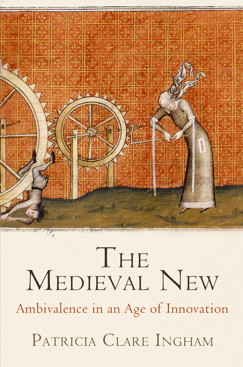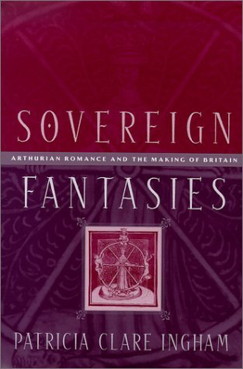Journal Articles and Other Publications
Journal Issues:
with Karma Lochrie, eds. “Medieval and Early Modern Utopias,” Special Issue. Journal of Medieval and Early Modern Studies, Fall, 2006.
Articles:
"Chaucerian Translations: Postcolonial Approaches to Teaching the Canterbury Tales," in Peter Travis and Frank Grady, eds. MLA Approaches to Teaching the Canterbury Tales, 2nd edition. (New York: Modern Language Association, 2014), 149-155.
Discipline and Romance," Critical Contexts: Middle English Literature, Routledge Critical Contexts Series. Crocker and Smith, eds. (New York: Routledge, 2014), 276-282.
"Dissention in the Ranks," postmedieval online Forum: Dissent, December 2012. postmedieval: a journal in midieval cultural studies, 3.2 (2012).
"Chaucer's Haunted Aesthetics: Trauma and Mimesis in Troilus and Criseyde," College English, 72.3 (January, 2010), 226-247.
*"Little Nothings: The Squire's Tale and the Ambition of Gadgets," Studies in the Age of Chaucer, 31 (2009), 53-80.
*"Critic Provocateur," Blackwell's Literature Compass, 6.6 (2009): 1094-1108.
“Making all things New: Past, Progress, and the Promise of Utopia.” Introduction to the Special Issue on “Medieval and Early Modern Utopias,” Journal of Medieval and Early Modern Studies. 35.3 (2006), 479-492.
“Losing French: Translation, Nation, and Caxton’s English Statutes,” in Caxton's Trace, ed. William Kuskin (Notre Dame: University of Notre Dame Press, 2006). 275-298.
"Psychoanalytic Criticism." Chaucer: An Oxford Guide, ed. Steve Ellis (Oxford UP, 2005). 463-478.
“Contrapuntal Histories,” Postcolonial Moves: Medieval Through Modern, eds. Ingham and Warren. (New York: Palgrave Press, 2003.) 47-70.
with Alexander Doty, "The Evil/Medieval: Gender, Sexuality, and Miscegenation in Val Tourner’s Cat People” in BAD: Infamy, Darkness, Evil, and Slime on Screen, ed. Murray Pomerance (New York: SUNY Press, 2003). 225-237.
“Pastoral Histories: Conquest, Utopia, and the Wife of Bath’s Tale,” Texas Studies in Literature and Language, 44.1 (2002), 34-46.
“‘In Contrayez Straunge’: Colonial Relations, British Identity and Sir Gawain and the Green Knight,” New Medieval Literatures, 4 (2001), 61-93.
“Marking Time: ‘Branwen, Daughter of Llyr’ and the Colonial Refrain,” The Post-Colonial Middle Ages, ed. Jeffrey J. Cohen New York: St. Martin’s Press, 2000, 225-46.
“Homosociality and Creative Masculinity in Chaucer’s Knight’s Tale,” Masculinities in Chaucer, ed. Peter G. Beidler, Suffolk: Boydell & Brewer, 1998, 23-35
“Masculine Military Unions: Rivalry and Brotherhood in the Avowing of King Arthur,” Arthuriana, 6, 4 (Winter, 1996): 25-44.





 The College of Arts
The College of Arts